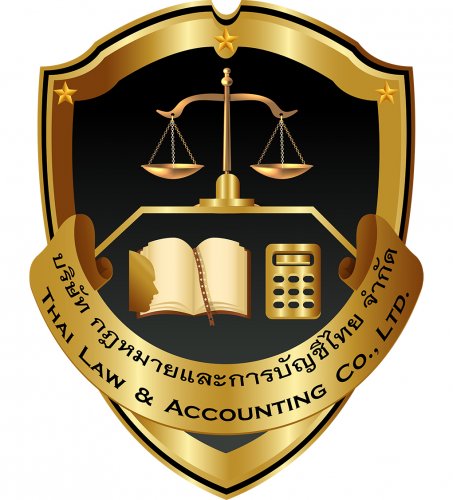Bangkok Lawyers in Thailand
Bangkok is Thailand's largest city where all government departments are located. These range from the courts system, prison systems and Thai Immigration. The companies registration office and Thai Foreign Affairs are all located in Bangkok. If you are in need of Bangkok lawyers then speak to us at Siam Legal. With branches in all the main cities of Thailand with our head office in Bangkok, we are best able to assist you with your legal needs.
About SIAM LEGAL INTERNATIONAL
Founded in 2000
55 people in their team
Practice areas
Languages spoken
Social media
Free • Anonymous • Expert Lawyers
Need Personal Legal Help?
Connect with experienced lawyers in your area for personalized advice on your specific situation.
Free consultation • No obligation
Practice areas
Immigration
Thailand Visa
Our Thailand Visa Services include legal assistance in obtaining Thai Elite Visa, Thailand Business Visa, One Year Multiple Entry Visa,Thailand Retirement Visa, Non Immigrant Visa, Work Permit, Thailand Permanent Residence Visa, Thai Citizenship and more.
Family
Thailand MarriageGet married in Thailand
Register of Marriage in Thailand
Marriage in Thailand for foreigners or Thai National and foreigner couple is easy to arrange and can be quickly accomplished. The legal Thailand marriage registration can be done at any district office in any province on any working day between 8AM and 3PM. You need original passports and proof that you are single when marrying a Thai woman in Thailand. If you have previously been married which ended in divorce or death you need the original certificates. If never been married you need to show the Ministry of Foreign Affairs a statutory statement of non-attachment notarized by your home embassy in Bangkok. Your Embassy may require proof of evidence to this fact.
A statutory statement required by the Thai officials will cost 1,000 Thai Baht each (US$30). Your home embassy in Bangkok will normally charge a fee for notarizing it and the Thai Ministry of Foreign Affairs (MFA) charges a minor fee for registering it and issuing a certificate to enable you to legally marry at any location in Thailand. An additional fee will be necessary to have the Thai Marriage certificate officially translated into Thai after the ceremony.
Special attention should be made about pre marriage planning. Assets of the foreigner should be protected. A Thailand prenuptial agreement prepared by our licensed Thailand lawyer is highly recommended. Prenuptial Agreements in Thailand should be prepared in both the Thai and English languages. If, for example, the foreigner is a US Citizen with assets in USA and Thailand, the prenuptial agreement should be prepared in such a manner that it is recognized and legally binding in both USA and Thailand. Prenuptial Agreements are less likely to be contested when prepared and signed well in advance of the marriage date. We recommend you choose a Thailand law firm to assist you with your Marriage Registration in Thailand so that your marriage is properly registered to avoid having legal difficulties in the future.
Business
The US News and World Report ranked first the Kingdom of Thailand in the 2020 Best Countries for Starting a Business global perception-based survey. The survey related to these five attributes: affordability, bureaucracy, low manufacturing costs, global connection and access to capital.
The survey took note of the several factors why Thailand is the best country for starting a business. Firstly, Thailand has been considered one of the most visited countries. It has a very stable agricultural sector as well as a booming and competitive manufacturing industry. Thailand is also the world’s largest exporter of rice and a leader in textiles, tin, and electronics.
The above survey was likewise corroborated with the data of Trading Economics ranking countries in the Ease of Doing Business. Thailand is ranked 21 among 190 economies in the ease of doing business, according to the latest World Bank annual ratings. The Ease of Doing Business index ranks countries based on how the regulatory environment is conducive to business operations, stronger protection or property rights. Being considered as the second-largest economy in Southeast Asia, Thailand is conveniently a business hub for the ASEAN region.
Business in Thailand continues to expand from time to time attracting more and more foreigners to invest or set up an enterprise. Foreigners not only invest in existing companies or put up their own establishment in Thailand. They also venture into the expansion of their branches.
Needless to say, Thailand continues to boom since its government consistently gives incentives to the business world. These incentives include the permission to own real estate property in the country upon satisfaction of all the requirements. Further, joint ventures are also encouraged thus giving business organizations more profitable options.
Lawsuits & Disputes
Litigation in ThailandThe Legal System of Thailand
Thailand is a civil law country. Most laws are codified and, unlike common law jurisdictions, the Thai courts are not bound by previous decisions. Stare decisis or compliance with former decisions of the Supreme Court is not mandatory, but in practice, Supreme Court decisions generally have a persuasive effect in the adjudication of disputes.
There is no jury system in Thailand. Cases are decided on the merits of the arguments and evidence submitted by the parties. Alternative dispute resolution is encouraged and settlements reached between the parties are respected by the court. Discovery (aka disclosure) procedures are still an unfamiliar concept in the system and are often difficult to enforce. Actual damages are awarded, but punitive or exemplary damages are rarely awarded. This is often a significant issue in personal injury claims, where compensation is also usually sought for ‘pain and suffering.’ Thai courts are unlikely to award damages in this category.
Thai natural and juridical persons, as well as those domiciled in Thailand, can bring suits against any defendant, assuming the Thai court asserts jurisdiction. Non-nationals and non-domiciled persons and entities can sue defendants deemed legally domiciled in Thailand.
Foreign persons or entities suing in Thailand need not be physically present in the country during the entire course of the suit. A lawyer in Thailand may file suit on the foreigner's behalf, and the foreign litigant may reserve personal appearance only when required by the court to give testimony against the contending party. Jurisdiction is determined by law alone. The venue may be waived or may be subject to the agreement of parties.
The petitioning party is responsible for requesting the court to issue the summons against the respondent. A separate petition must be filed to request the court to serve the complaint and summons to the defendant. A reasonable amount of time is allowed for the service. If the defendant is not domiciled in Thailand, service of summons must be effected through diplomatic channels. Foreign judgements are not enforceable in Thailand. A separate suit needs to be filed, and the foreign judgement is presented as evidence in the new case. In such cases, the court will necessarily examine whether the foreign court which decided the case had jurisdiction and whether the judgement was final.
Like in most countries, the burden of proof in criminal cases like murder or rape is proof beyond reasonable doubt. On the other hand, civil disputes like the breach of contract or rescission require mere preponderance of evidence (aka ‘the balance of probabilities’).
Litigation in Thailand
Thai culture generally has a strong bias towards the amicable resolution of disputes. Thai courts prefer parties to act in a conciliatory way and make good faith efforts to resolve any dispute before court intervention. This is reflected in the common practice of mediation: courts of first instance will generally order the parties to attempt to resolve any dispute between themselves before the hearing of any substantive issues.
Of course, not all disputes can be resolved at this stage and will require court intervention. This is where it becomes critical to have an experienced Thai lawyer in your corner. All pleadings and legal proceedings in Thai courts are conducted in Thai and only qualified Thai lawyers are permitted to conduct litigation in Thai courts.
Our litigation team has the combined experience of thousands of hours negotiating a range of disputes in the Thai courts, from the lower courts through the Court of Appeal to the Supreme Court. All our litigation lawyers are bi-lingual and can communicate and speak English to a high standard, a skill which lends itself to a significant level of transparency throughout the entire process.
We are experts on Thai law and regularly provide formal advice to clients and lawyers in other jurisdictions on matters of Thai law, particularly the US, the UK, Singapore, Hong Kong, and Australia, including the provision of advice to foreign governments.
In addition, our team contains legal professionals and qualified lawyers from foreign jurisdictions who understand the challenges and are experts in the conduct of cross-border disputes. Our team has conducted some of the most significant and high-value cross-border litigation in recent years between Thailand and foreign jurisdictions and has a profound understanding of the unique issues that are present in this highly specialised area.
Together with our Thai counterparts, our team of foreign legal professionals from the Americas, Europe, and Asia are committed to the provision of impeccable services to our foreign and Thai clientele in the following fields of practice:
- Criminal Law - Fraud, Theft, Serious Assault, Drug Offences, Criminal Negligence, Money Laundering
- Civil Law - Breach of Contract, Debt Collection, Property Disputes
- Family Law - Divorce, Adoption, Child Custody, Child Visitation, Child Repudiation
- Personal Injury – Unlawful Acts (aka Torts), Medical Malpractice
- Labour Disputes
- Extradition
- Intellectual Property Disputes
- Trade Disputes
If you have questions related to litigation, please check our Thailand Litigation FAQs page, or feel free to contact us.
Real Estate
Purchasing property in Thailand
Thailand Property
Thailand has been home to beautiful and exotic islands in Southeast Asia. Foreigners and travelers alike are mesmerized by the country’s culture, history, its tropical weather and needless to say, its vibrant and fun-loving nightlife. With these inviting scenarios, foreigners are considering acquiring properties in Thailand either to settle permanently or simply for a holiday getaway.
Purchasing a property in Thailand involves many factors. There are a number of considerations to make before committing into purchasing Thailand Real Estate. Some of these include:
- The type of property
- The price of the property
- The location of the property
- The reason for purchasing the property
- The quality and workmanship of the property
- The legal processes involved in acquiring the property
Similar lawyers in Bangkok
Legal guides written by GPS Legal:
- Land Ownership in Thailand: Title Deeds
- Thailand’s SMART Visa program: What you should know
- Estate planning goes beyond wills






